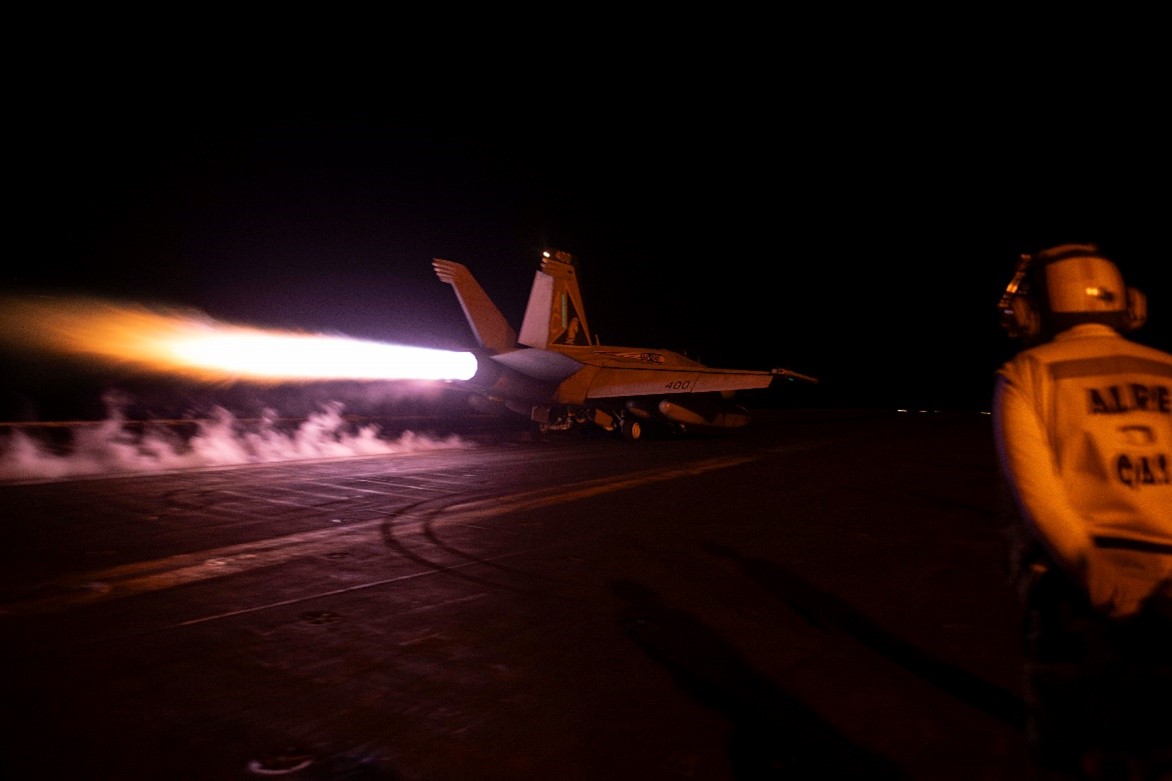The U.S. military forces, including air force B-2 bombers, conducted strikes against five hardened underground weapons storage locations in Houthi-controlled areas of Yemen, according to U.S. Defense Secretary Lloyd J. Austin.
The U.S. forces targeted several of the Houthis’ underground facilities housing various weapons components of types that the Houthis have used to target civilian and military vessels throughout the region, reads the statement from the defense department.
Austin said he authorized the strikes at the direction of President Biden in order to “further degrade” the Houthis’ abilities after more than a year of attacks by the group on US and international vessels in the region.
“This was a unique demonstration of the United States’ ability to target facilities that our adversaries seek to keep out of reach, no matter how deeply buried underground, hardened, or fortified,” Austin said on Wednesday.
“The employment of U.S. Air Force B-2 Spirit long-range stealth bombers demonstrate U.S. global strike capabilities to take action against these targets when necessary, anytime, anywhere.”
American forces conducted multiple, airstrikes on numerous Iran-backed Houthi weapons storage facilities within Houthi-controlled areas of Yemen that contained various advanced conventional weapons used to target U.S. and international military and civilian vessels, navigating international waters throughout the Red Sea and Gulf of Aden.
CENTCOM forces targeted the Houthi’s hardened underground facilities housing missiles, weapons components, and other munitions used to target military and civilian vessels throughout the region.
U.S. Central Command (CENTCOM) announced that an assessment of the attacks’ impact is underway, with no evidence indicating any civilian casualties.
“These actions were taken to degrade the Houthi’s capability to continue their reckless and unlawful attacks on international commercial shipping and on U.S., coalition, and merchant personnel and vessels in the Red Sea, Bab Al-Mandeb Strait, and the Gulf of Aden,” CENTCOM added.



